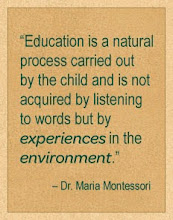Focus on intellectual development!
Many parents whose gifted kids excel in school with straight A's are not aware of special needs besides academic challenge. Others whose equally gifted kids are failing likely believe it is their child's fault! Teachers who do not understand what giftedness is often believe this also. They see no reason to offer the gifted student support; in fact they do not really believe some students are "more gifted" than others. Wanting to appear politically correct they will say that all kids are gifted. “Turn this around”, says psychologist and giftedness expert Linda Silverman, “and see how much sense it makes if they were to say, all kids are retarded!”
Kids who lag far behind average students in their understanding and in the speed and ease with which they can process information need adaptations. The same is true for students who are mentally advanced, the ones we call the gifted. They are far ahead of average students in their understanding and in the speed and ease with which they can process information. They too need adaptations!
Most regular classroom teachers still do not have training in meeting the needs of intellectually advanced students, so it’s up to parents to help bring about the much needed changes. Parents should inform themselves about the various effective strategies in which their children can and should be taught. For example they can and should insist that a school make use of cluster grouping, compacting, cross grade level grouping, subject or grade skipping and in some instances even allow their child to attend school half-time.
Due to the competitive nature of high school and the ensuing track to college much revolves around high GPA, ACT and SAT scores. Few people, whether they be parents, teachers, community members or the students themselves, realize that straight A's can actually hint at debilitating underachievement. Underachievement because the student is usually capable of more challenging material and debilitating because the student does not want to risk losing perfect grades by actually doing more challenging material. So, grades remain more important than nurturing the intellectual and social-emotional development of students.
Academic challenge is very important, but not enough for the few GT kids who are non conformist and who, through observation and analytical thinking, are likely smarter than many adults around them! These students, the brightest among the bright need help not hindrance in pursuing their goals and fulfilling their potential.
Due to the reorganization that has taken place in District Six it is important that parents’ voices for the support of gifted education are heard. They need to find out what sensible options there are for gifted children whose talents and intelligence should be seen as a valuable resource to the community but who often end up as “the forgotten”
Kids who lag far behind average students in their understanding and in the speed and ease with which they can process information need adaptations. The same is true for students who are mentally advanced, the ones we call the gifted. They are far ahead of average students in their understanding and in the speed and ease with which they can process information. They too need adaptations!
Most regular classroom teachers still do not have training in meeting the needs of intellectually advanced students, so it’s up to parents to help bring about the much needed changes. Parents should inform themselves about the various effective strategies in which their children can and should be taught. For example they can and should insist that a school make use of cluster grouping, compacting, cross grade level grouping, subject or grade skipping and in some instances even allow their child to attend school half-time.
Due to the competitive nature of high school and the ensuing track to college much revolves around high GPA, ACT and SAT scores. Few people, whether they be parents, teachers, community members or the students themselves, realize that straight A's can actually hint at debilitating underachievement. Underachievement because the student is usually capable of more challenging material and debilitating because the student does not want to risk losing perfect grades by actually doing more challenging material. So, grades remain more important than nurturing the intellectual and social-emotional development of students.
Academic challenge is very important, but not enough for the few GT kids who are non conformist and who, through observation and analytical thinking, are likely smarter than many adults around them! These students, the brightest among the bright need help not hindrance in pursuing their goals and fulfilling their potential.
Due to the reorganization that has taken place in District Six it is important that parents’ voices for the support of gifted education are heard. They need to find out what sensible options there are for gifted children whose talents and intelligence should be seen as a valuable resource to the community but who often end up as “the forgotten”

